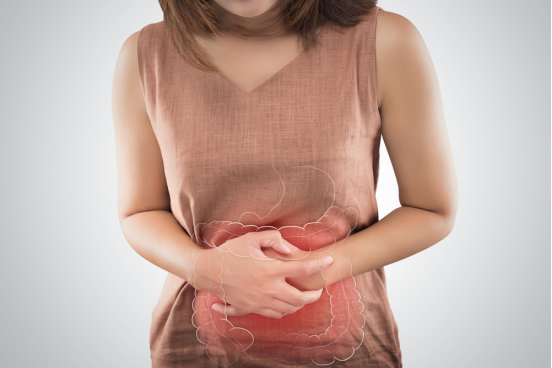Growths that appear on the lining of the colon and usually protrude into the colon are called colon polyps. They form when the genetic material in the cells lining the colon changes and becomes abnormal. Normally, the immature cells lining the colon proliferate, mature, and then die in time.

On the other hand, genetic changes in the lining cells prevent the cells from maturing, and they do not die. As a result, the immature and genetically abnormal cells accumulate in the colon, eventually leading to the formation of polyps.
This article aims to increase awareness about colon polyps, their types, symptoms, diagnosis, causes of colon polyps, and more.
What are the types of colon polyps?
- Inflammatory colon polyps:Also known as pseudopolyps, they occur primarily in people with inflammatory bowel diseases (IBD) such as Crohn's disease or ulcerative colitis. These polyps are an inflammatory manifestation of IBD, and they are benign and unlikely to develop into cancer.
- Adenomatous colon polyps: This type of colon polyp, also known as adenoma, accounts for about 70% of all polyps found in the colon. They can become cancerous, but the process takes years.
- Hyperplastic Colon Polyps:The term hyperplastic means rapid growth, which indicates an abnormal increase in the number of cells, causing colon polyps to enlarge in size. Although hyperplastic polyps grow quickly, they have a lower risk of becoming cancerous.
- Villous Adenomas:This type of colon polyp has a higher chance of becoming cancerous. It is estimated that about 30% of villous adenomas will develop into malignant disease. These polyps require surgical removal to remove their cauliflower-like projections.
What are the causes of colon polyps?
- Experts are unsure of the cause of colon polyps.
- However, the cause is believed to be a combination of environmental and genetic factors that cause abnormal tissue growth.
What are the known risk factors for colon polyps?
- Age: The risk of developing colon polyps tends to increase with age.
- Family history: Having a close relative with colon cancer or polyps increases the risk.
- Gender: Men are slightly more likely to develop polyps.
- Race: Black men and women face a higher risk.
- Alcohol: Alcohol consumption is strongly associated with the risk of colon cancer and is considered one of the causes of colon polyps.
- Red Meat:Red meat can be one of the causes of colon polyps if not consumed in moderation. Too much red meat can also increase your risk of colon cancer.
- Fiber deficiency:Eating enough fiber has many benefits, including benefits for the colon. It can reduce your risk of colon cancer.
- Smoking: Smoking increases your risk of various cancers, and colon polyps or cancer are no exception.
- Obesity:Obese people have a higher risk of colon polyps and cancer.
How are colon polyps diagnosed?
The following tests can help diagnose colon polyps:
- Colonoscopy
- Sigmoidoscopy
- Barium enema
- CT colonography
- Stool exam
What are the symptoms of colon polyps?
- Changes in stool color
- Rectal bleeding
- Iron deficiency
- Anemia
- Changes in bowel habits
- Stomach pain
- Blood in the stool
- Fatigue
How common are colon polyps?
- They are common.
- Their frequency increases with age.
- If someone has a colon polyp, they are more likely to develop polyps in other parts of the colon later.
- Only a small percentage of polyps cause symptoms or signs, and these are usually the result of bleeding from the polyp.
How can colon polyps be prevented?
- Develop healthy habits: Develop healthy habits and eat more fruits, vegetables, and whole grains. Limit fat intake and alcohol consumption and quit smoking. Stay physically active and maintain a healthy weight. Avoid all possible causes of colon polyps.
- Seek advice if you are at higher risk:If there is a family history of colon polyps or other risk factors are at play, it is important to seek medical advice and recommendations immediately. Regular colonoscopies can prevent the formation (cause) of colon polyps and thus their development.





